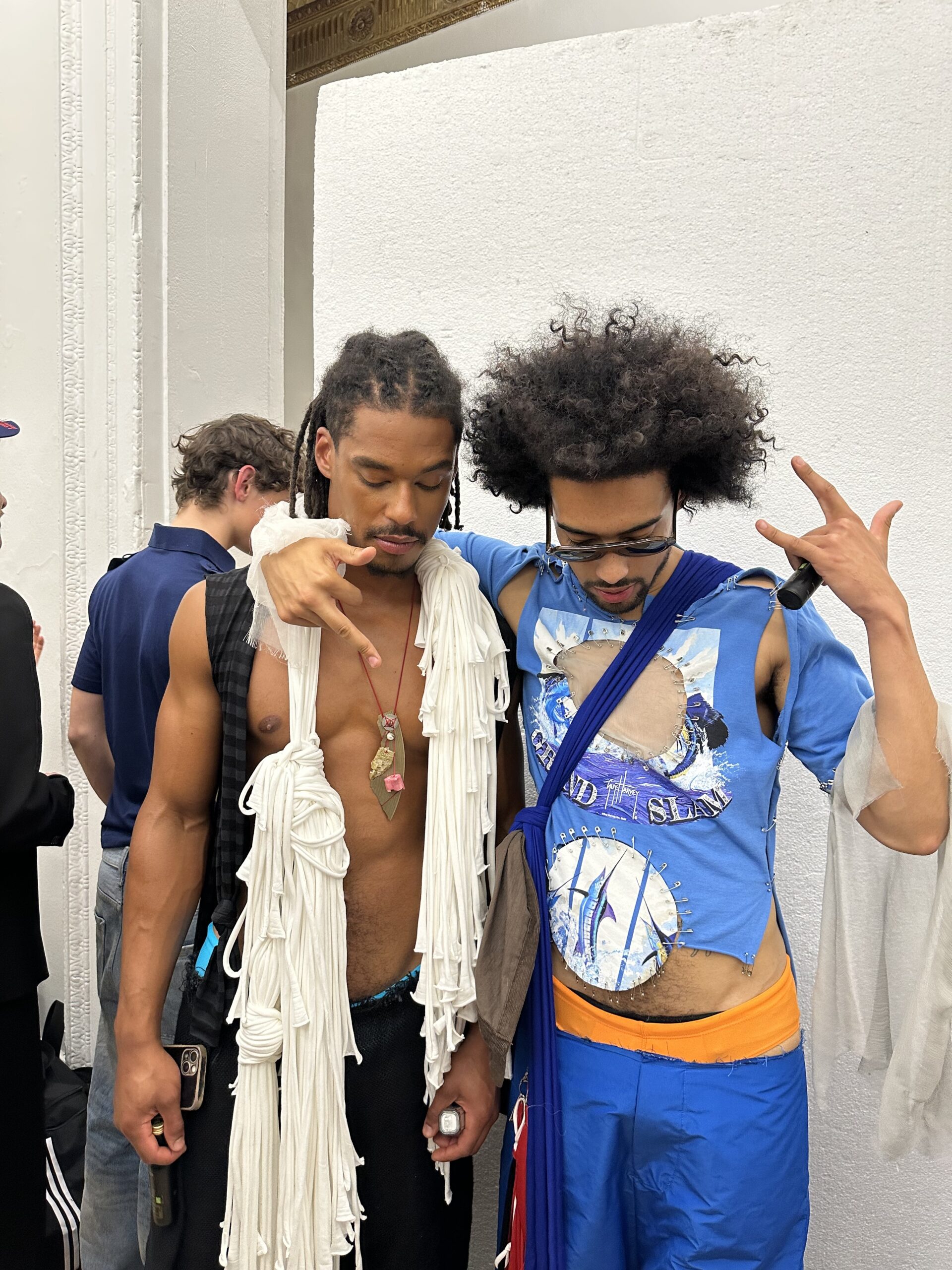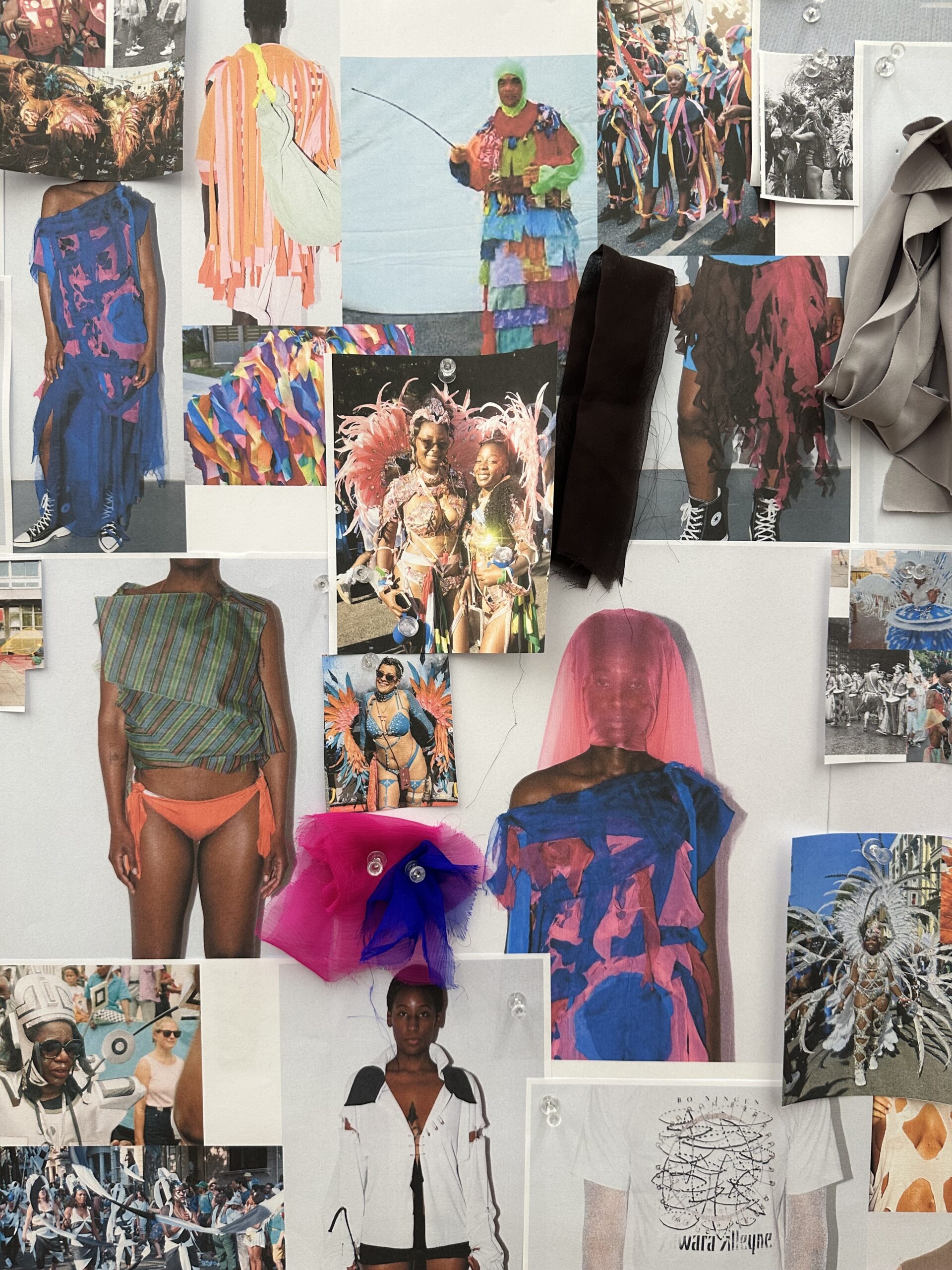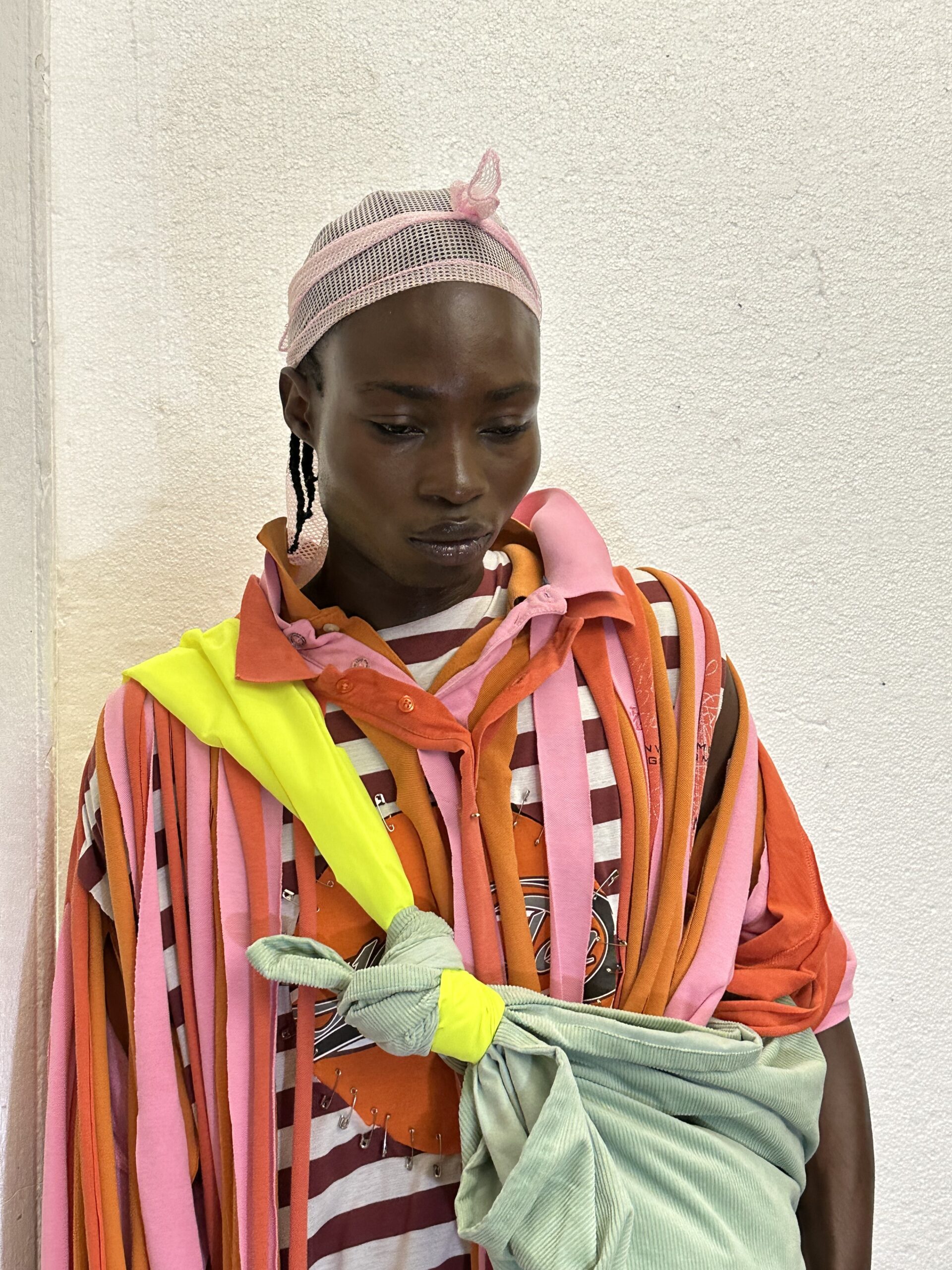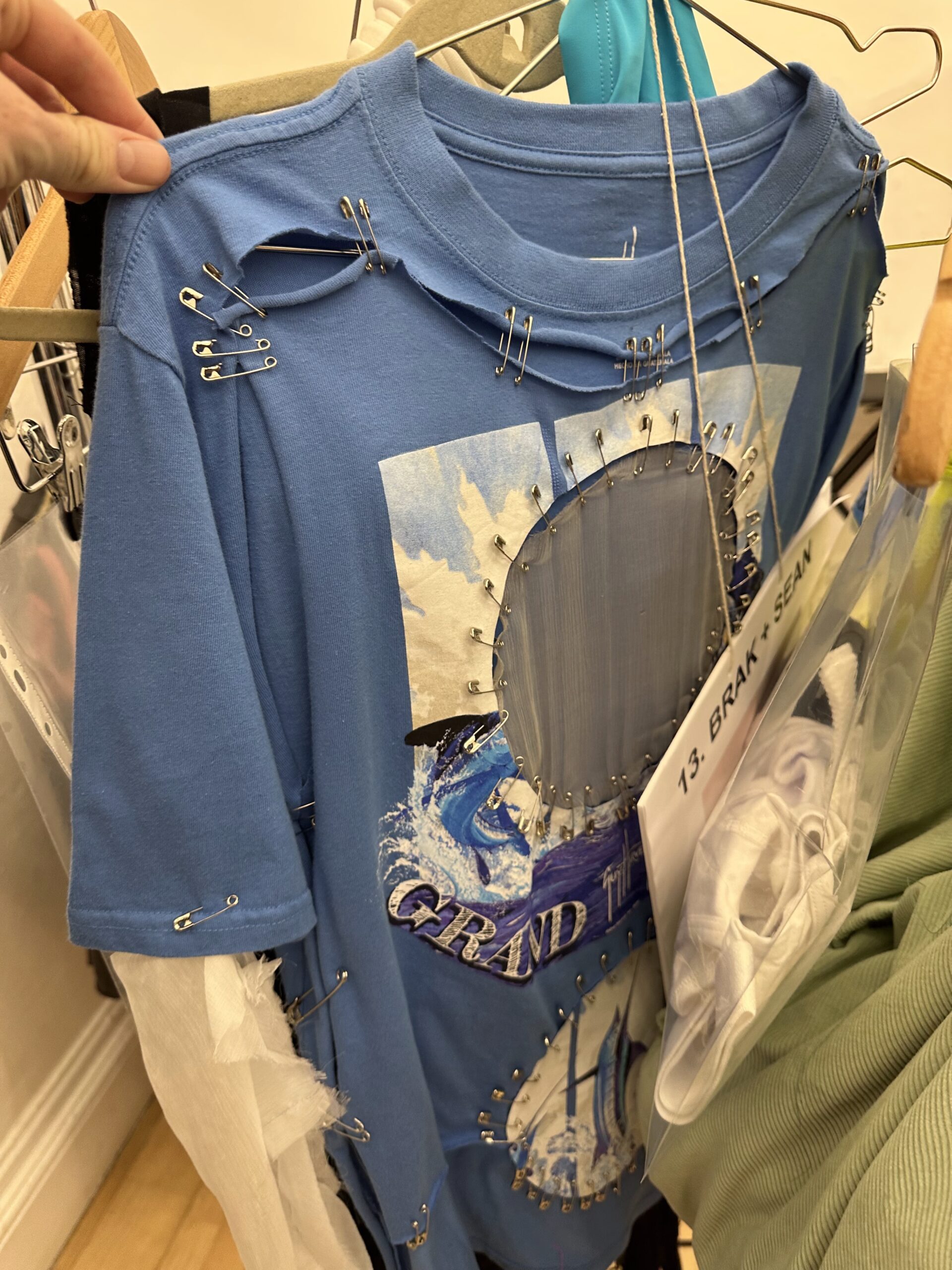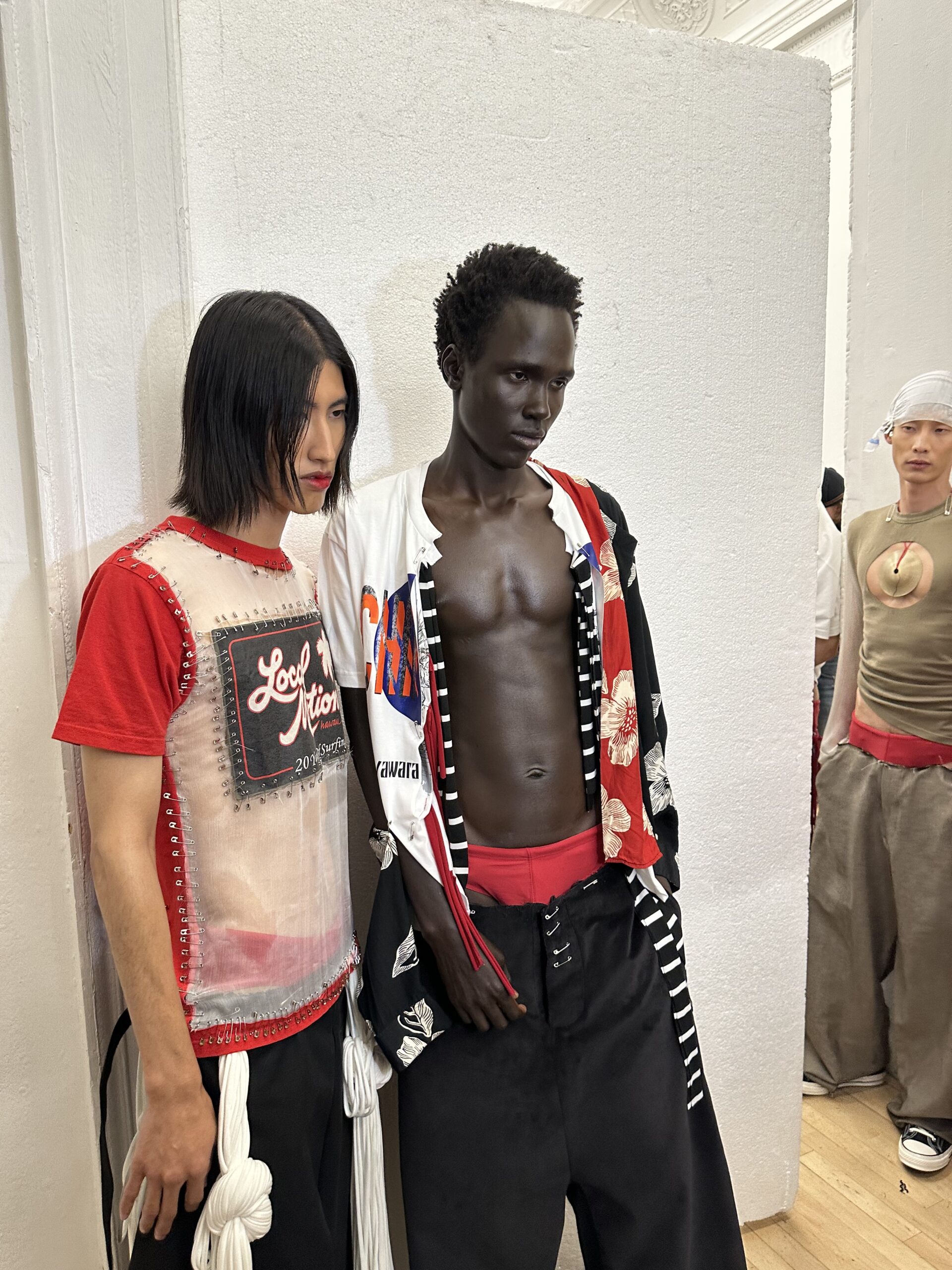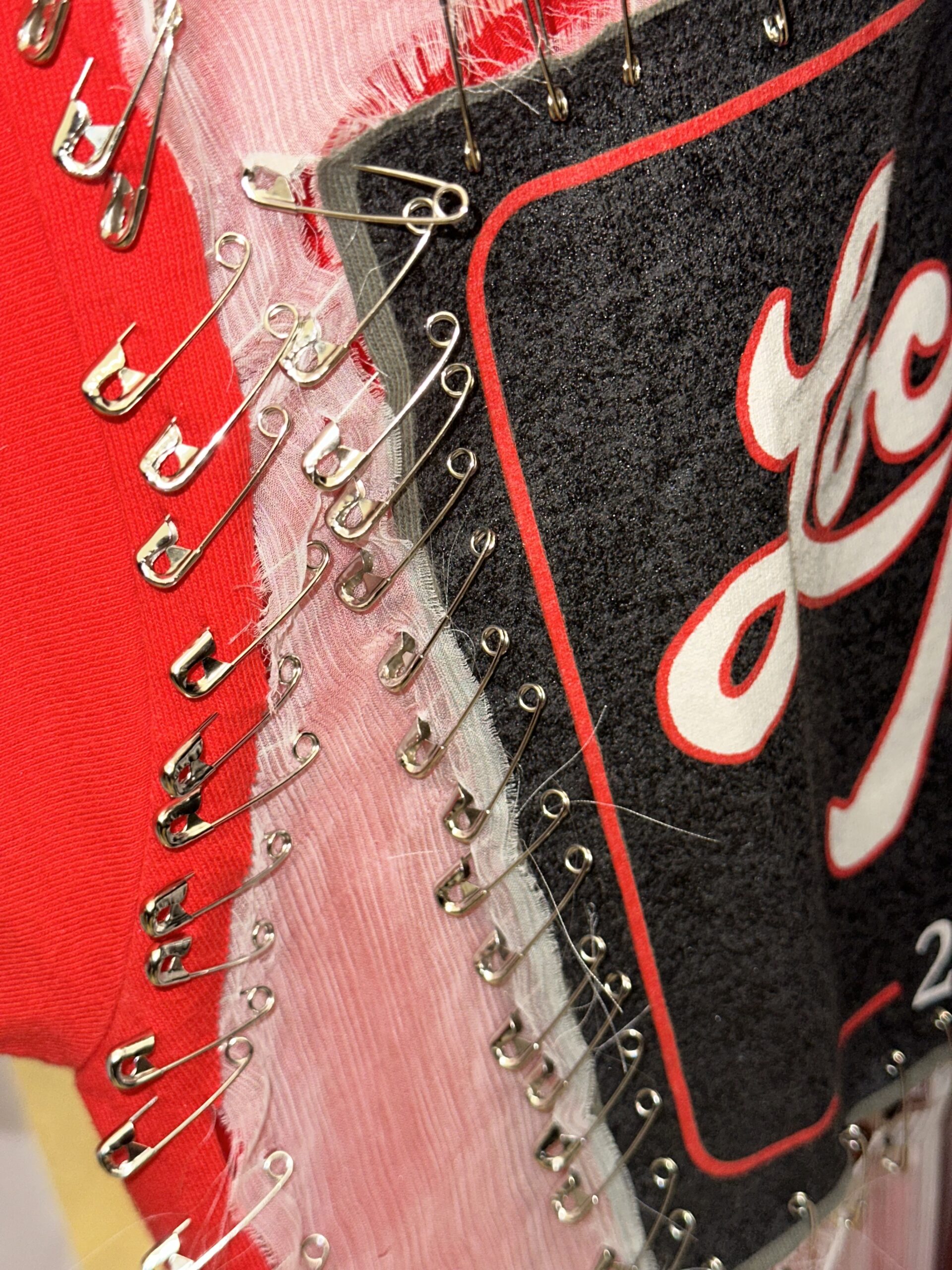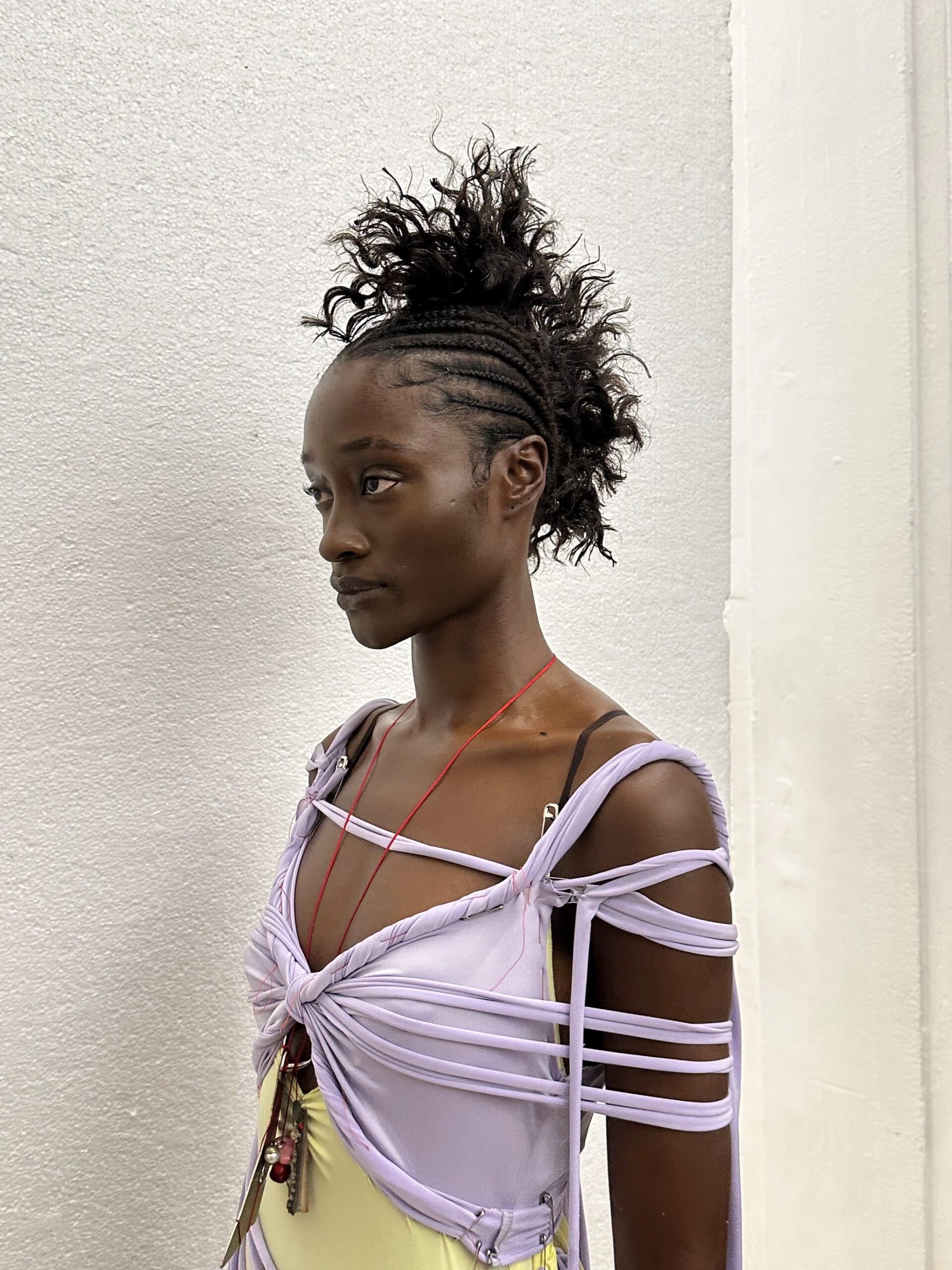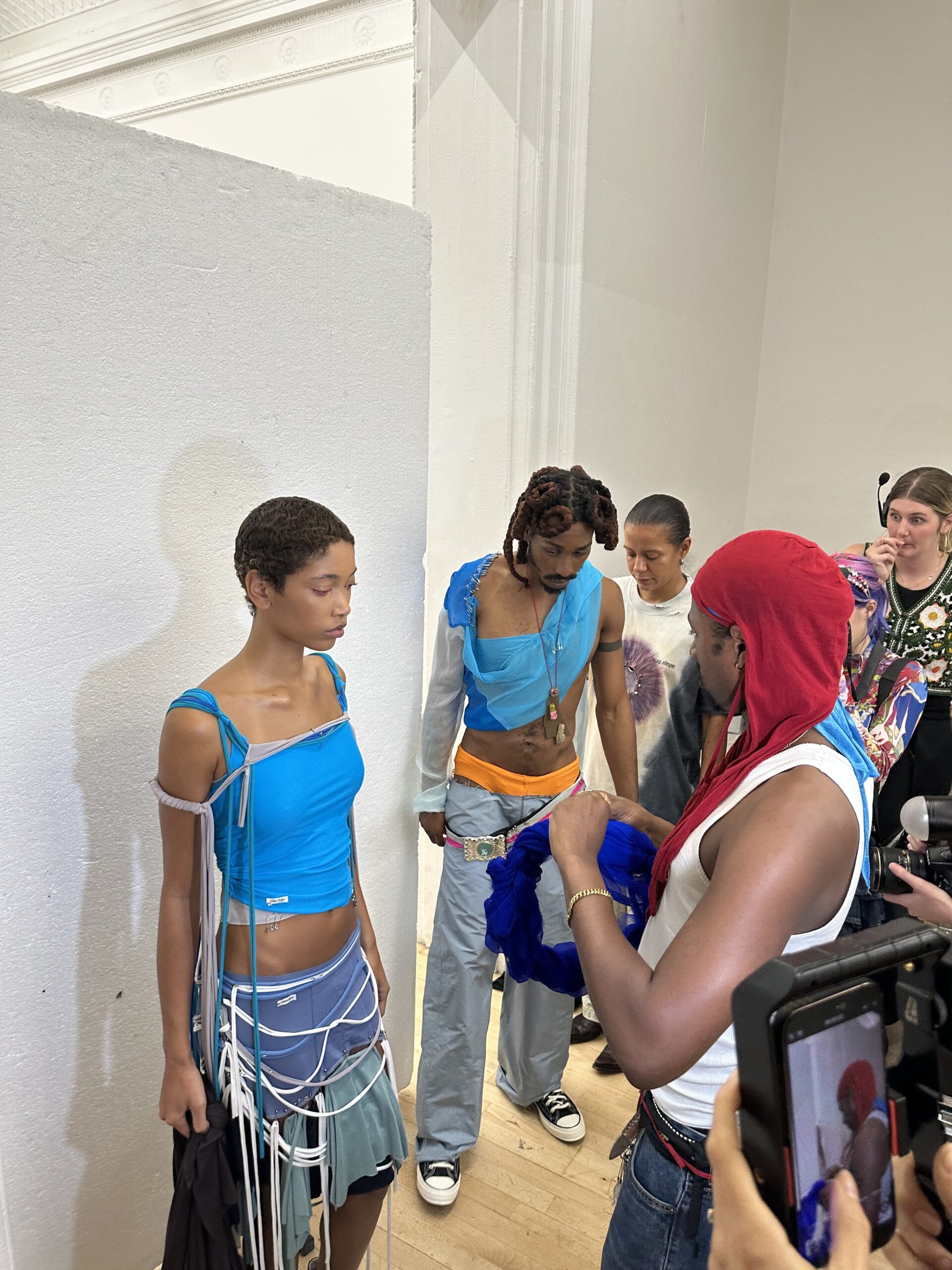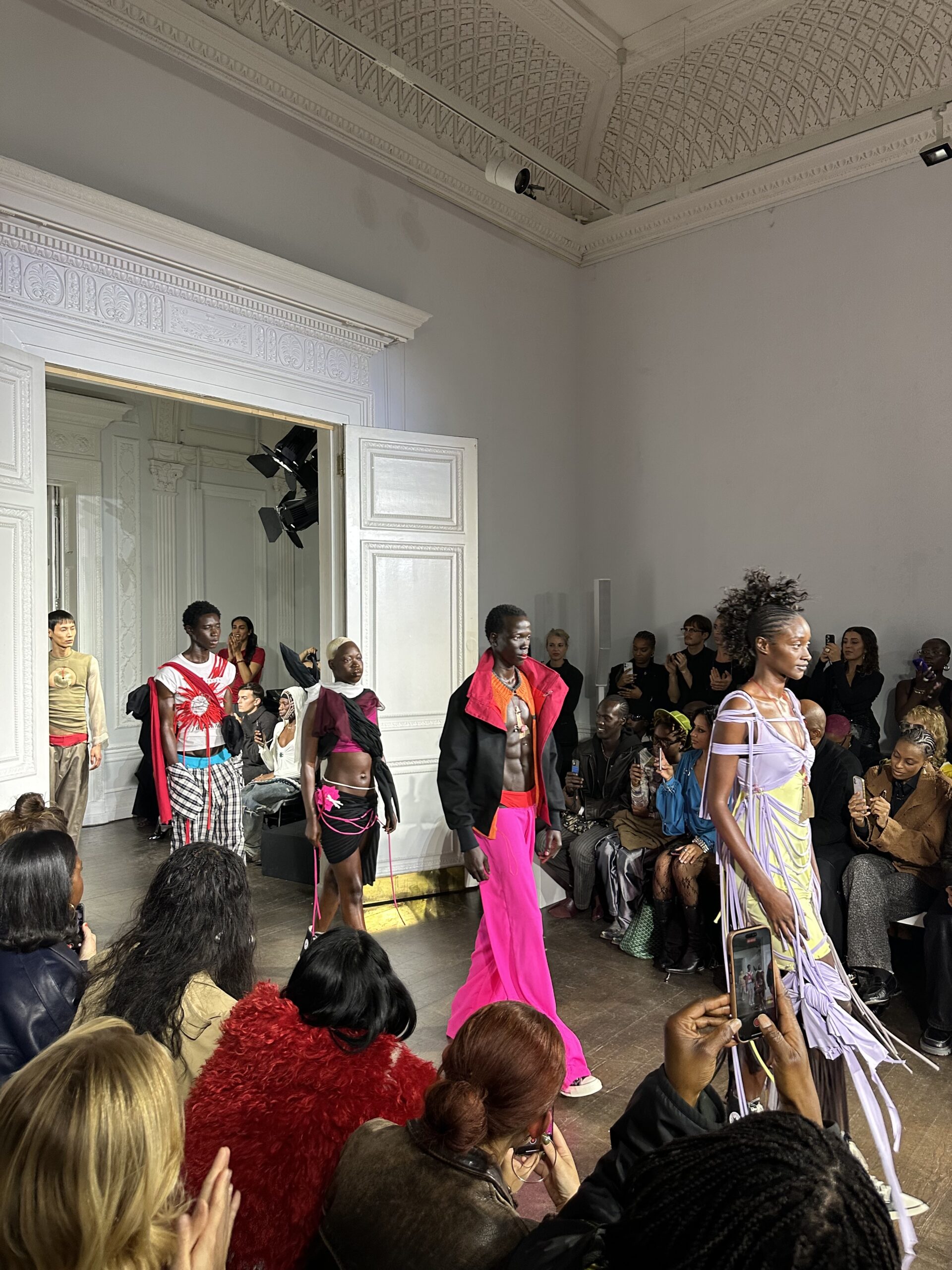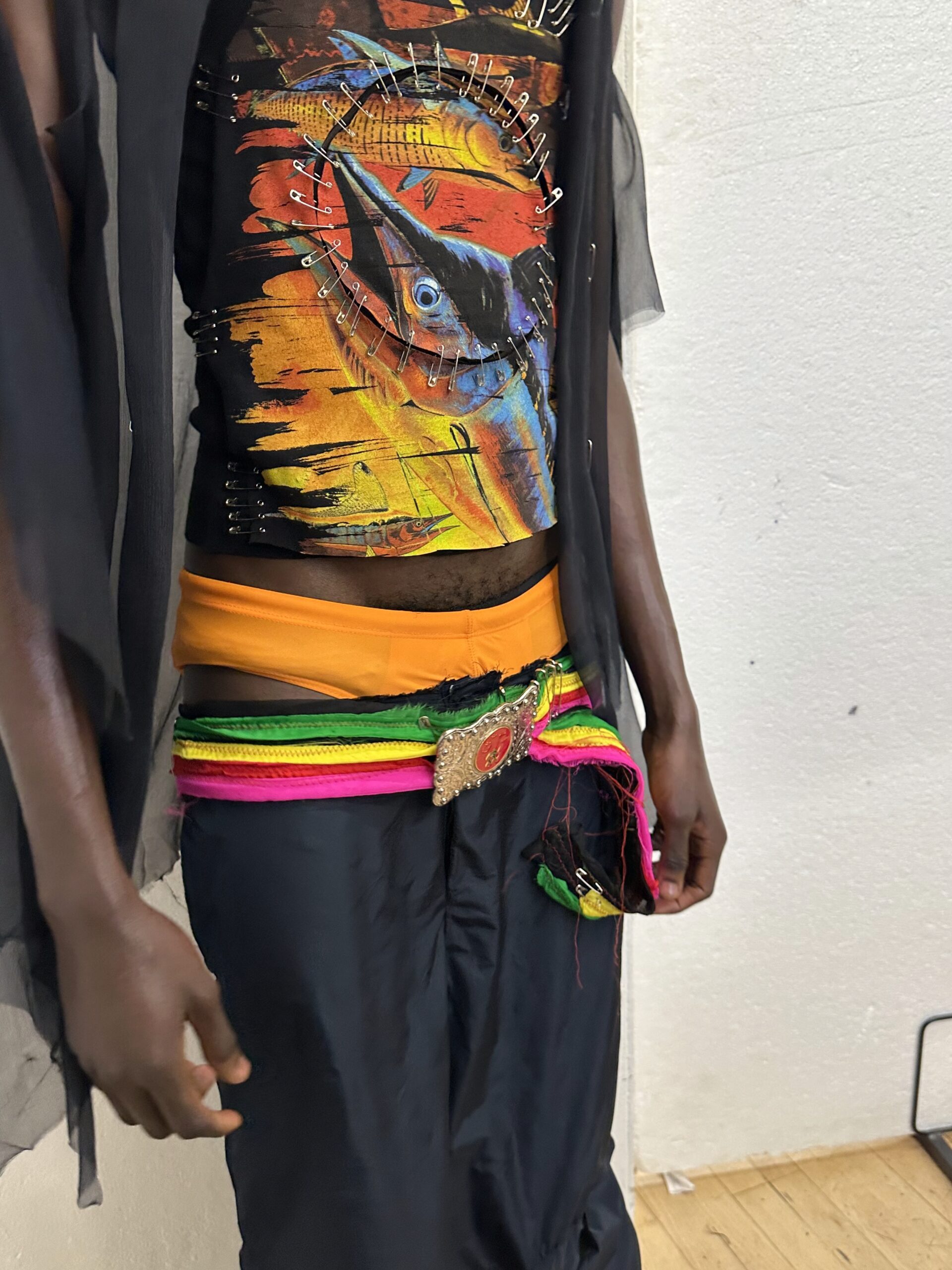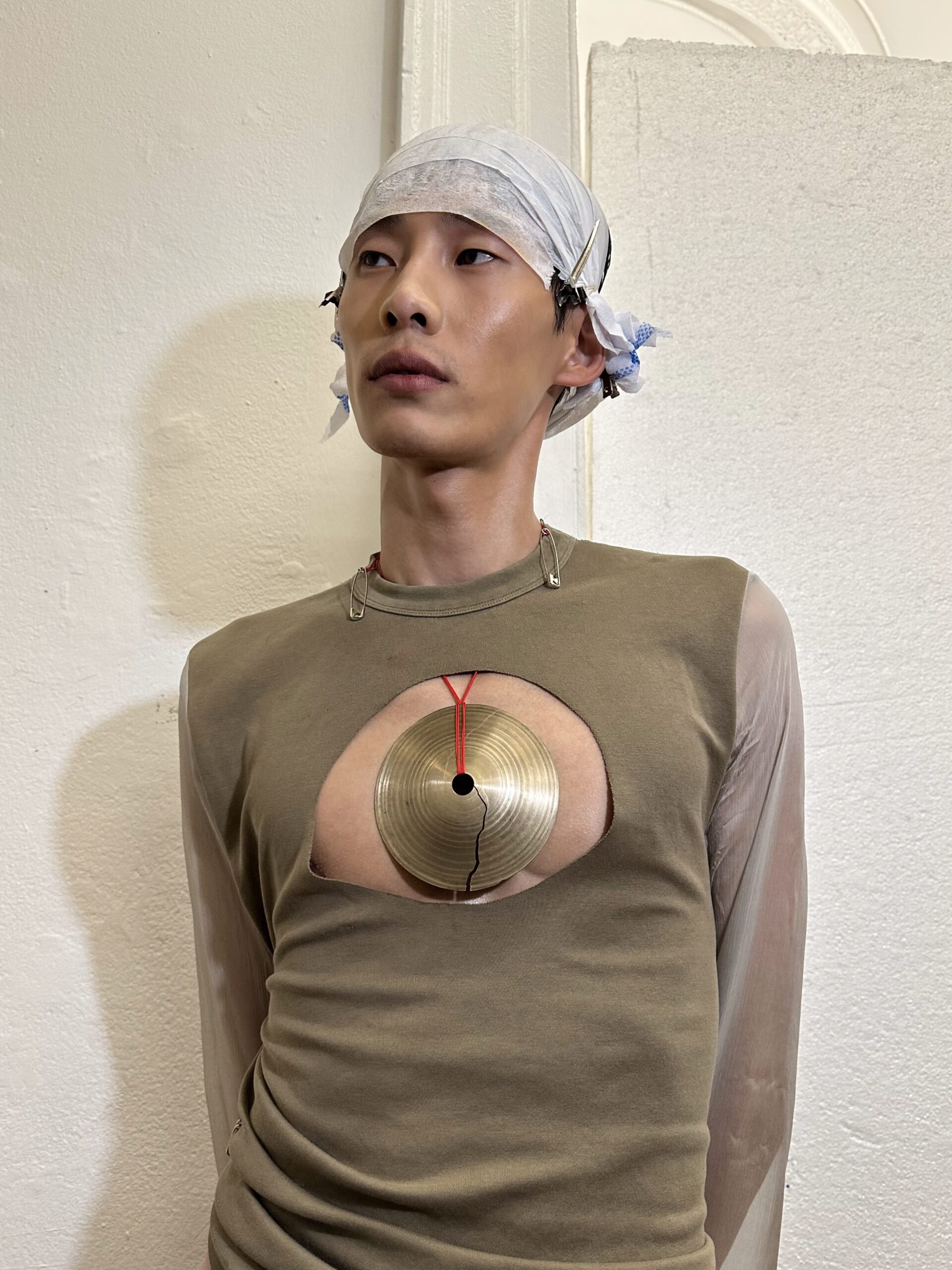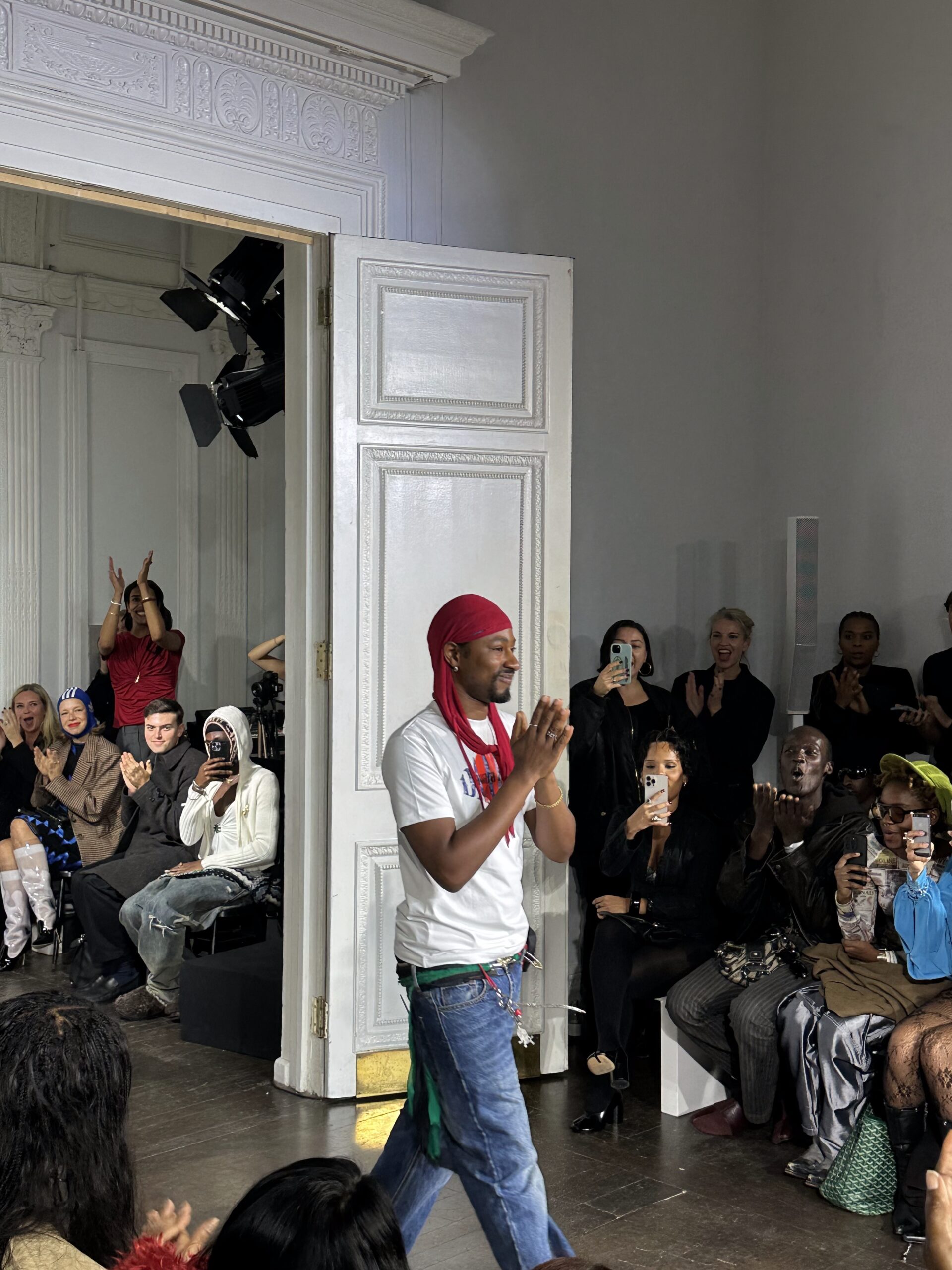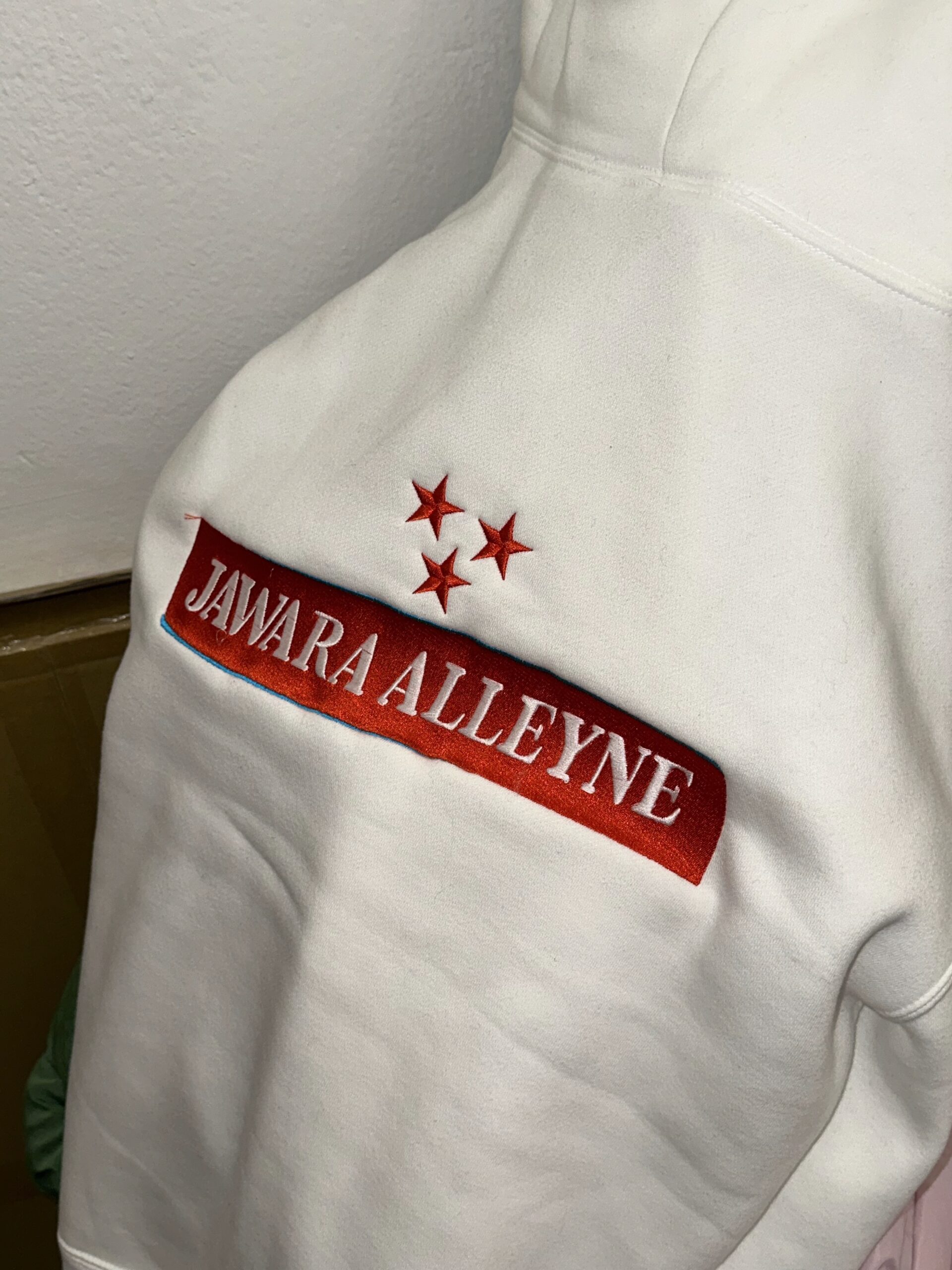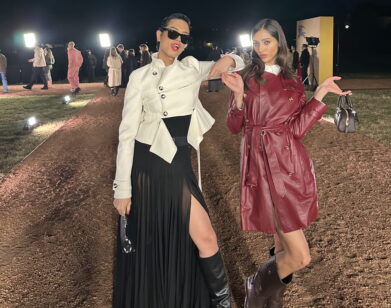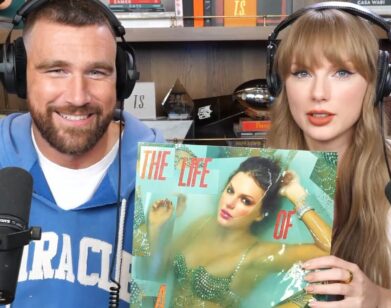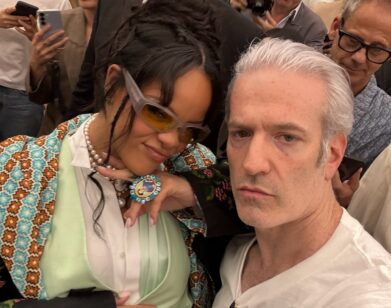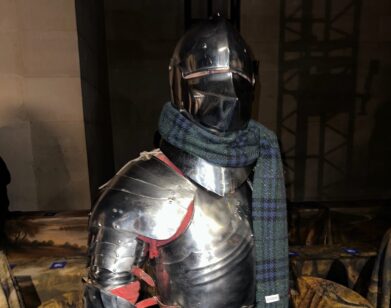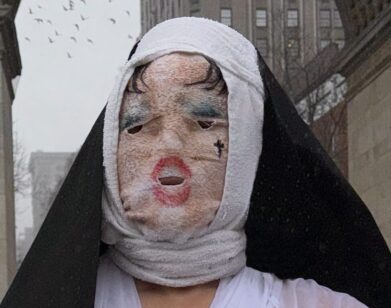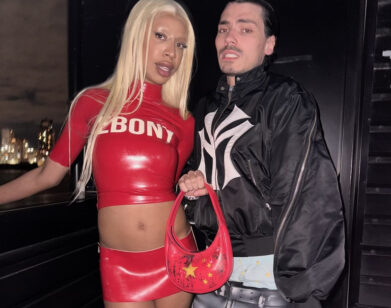LONDON FASHION WEEK
“I Always Try to Avoid Nostalgia”: Behind the Scenes at Jawara Alleyne SS26
SUNDAY 6:12 PM SEPTEMBER 21, 2025 LONDON
As models are getting preened and primed and the finishing touches are being put on his Spring-Summer 2026 collection, Jawara Alleyne is still the calmest person in the room. We’re backstage at the Caribbean-born, London-based designer’s LFW show at the Institute of Contemporary Art, coming on the heels of a shout-out from Rihanna herself in this very magazine. The collection, named for the Caribbean term “tabanca,” is sexy, with neon swim trunks peeking through upcycled trousers as the models stumble down the runway as if they’re leaving an all-night party. Or, in Alleyne’s world, Carnival. After the show, I snuck backstage with the designer to find out more about the concept of “tabanca.”
———
BEN FREEMAN: The show’s just finished. How do you feel?
JAWARA ALLEYNE: I feel great.
FREEMAN: Yeah? I was reading the show notes, and tabanca? Am I pronouncing that correctly?
ALLEYNE: TA-BAN-CA, yeah.
FREEMAN: What a beautiful, sad concept. Can you talk a little bit more about why you chose that as a concept and your relationship to Carnival as well?
ALLEYNE: I’m always looking for ways to do fashion that’s actually meaningful, not just pretending to be meaningful. The collection comes around and you need to come up with the inspiration and sometimes you feel like you have to pluck something out of thin air. But as I progress in my career, that’s not really what I want to do, so I’m redefining how I approach talking about collections and how that collection actually comes to the fore. This entire year has only happened because of all the people that have been pouring into the brand. When I was thinking about what I wanted the collection to be inspired by, Carnival felt really important.
FREEMAN: Yeah.
ALLEYNE: And for me, as a person that grew up in the Caribbean, Carnival is so important because especially when you’re in England, it’s the only place where our culture is actually alive, even though there’s so many Caribbean people here. So Carnival this year felt really important and especially when you look at what’s happening around the world, when you look at people’s right to speak, people’s right to protest, people’s right to exist in the streets… Notting Hill Carnival started as a protest. And it feels like one of the ways where politics is actually at play. I’m also thinking a lot about memory. Nostalgia exists a lot in fashion, but I always try to avoid nostalgia because I feel like it’s really dangerous. It doesn’t really progress culture forward, and I’m always forward-facing.
FREEMAN: You don’t want to be too referential.
ALLEYNE: You never want to be too referential. So instead of avoiding nostalgia, think about ways that I can incorporate that feeling in a way that we haven’t seen before. TABANCA has a feeling of nostalgia within it, but it’s not a glorification of the past. It’s more of a joy that the past has happened.
FREEMAN: It’s almost like leaving the party is an allegory for it.
ALLEYNE: Yeah. It’s a word that describes the thing that you get after Carnival, or after you had a great night at a club. It exists after you’ve gone to a fab gig with your friends. It exists in all of these ways where people meet and come together and then have a great time and then you’re leaving. But what makes it TABANCA is not just the fact that you had a great time; it’s the fact that you had a great time with all of those people that were around you.
FREEMAN: What’s your perfect Carnival day?
ALLEYNE: Ooh, perfect Carnival day, that one is hard because I think it depends on what Carnival you’re at. Every Carnival is very different. What’s really interesting actually is that I was talking to somebody and they were like, “You can’t have the perfect Notting Hill Carnival because you always have this feeling of FOMO. Even if you’re at a fab stage, you know that two stages down a couple of your friends are trapped over there and also having a fab time.”
FREEMAN: Absolutely.
ALLEYNE: So I think what really makes it perfect is people, the energy that you have around you and the people that you’re with. You just have to go with the flow.
FREEMAN: Well, I love the collection. I love the clothes. It really did make me mournful that summer is over.
ALLEYNE: Yes.
FREEMAN: You have an interesting connection with Interview already in that Rihanna name dropped you last year.
ALLEYNE: Yes.
FREEMAN: How did that feel?
ALLEYNE: That felt crazy, actually. People ask me about Rihanna a lot, and it’s really interesting because she’s somebody that I’ve genuinely looked up to. I was a teenager when she was coming up in the music industry and seeing somebody from the Caribbean that was actually taking global culture by storm and being authentically themselves—
FREEMAN: Totally.
ALLEYNE: That’s really one of the reasons why I can do that, because I saw that very young. I saw somebody that came from a place like me, spoke like me, looked like me, had experiences like mine and didn’t have to hide. And now having that person appreciate what it is that I’m doing—tapping into it, wearing it, actually loving the brand so much that they’re going to actually speak about it—it feels great. It feels like your hero has shouted you out.
FREEMAN: Yeah, I love that. So Rihanna said that you’re her favorite new designer. Who’s your favorite new designer?
ALLEYNE: Ooh, that is a good question. I’m my favorite new designer. But there’s a new guy that just started at Fashion East. His Instagram is @Mayhew. I think he’s really great because he’s a carpenter. He’s a tradesman, and then he decided to go and study fashion. If you meet this guy, you would never think that he’s in fashion, but I think you need voices that are authentic, people who are going another route that’s separate to the route that has been placed in front of them.
FREEMAN: Totally.
ALLEYNE: We really need that now. I mean, we’re trapped in this social media frenzy where everyone is self-governing each other based on a world that doesn’t exist anymore and rules that apply to no one. You really need those examples where people are saying, “No, we’re going to do things our own way.”
FREEMAN: I’ll have to check him out. So, back to the show, the way that the models were walking down the catwalk felt very “trying to find an Uber” or something.
ALLEYNE: Yeah.
FREEMAN: I loved that. Can you talk a little bit more about that as a feeling? How do you avoid that complete melancholy after a night out?
ALLEYNE: I don’t think you can avoid it. I think it’s nice to sit in it. You had a great night and that’s fine. But I fucking hate being drunk and hungover, so I would sometimes leave the club and, instead of taking an Uber, I would just walk so that by the time I get home I’m sober. Then I sit in it and I decompress and I return to normalcy, or at least try to. But I think it’s really important to sit in feelings and not to try and rush things or try to get out of it too fast. Sometimes you just need to be where you’re at and be comfortable being there.
FREEMAN: Exactly.
ALLEYNE: I’m a person that stays until the very end because I love dancing. I used to go to PDA back in the day, and a lot of the feelings I’ve pulled into the collection are from going to PDA and partying. I would literally stay there until closing 6:00 a.m and then they would go to the afters and I would just walk home.
FREEMAN: Totally. When did that party stop?
ALLEYNE: [Laughs] Has it stopped?
FREEMAN: That’s the question.

